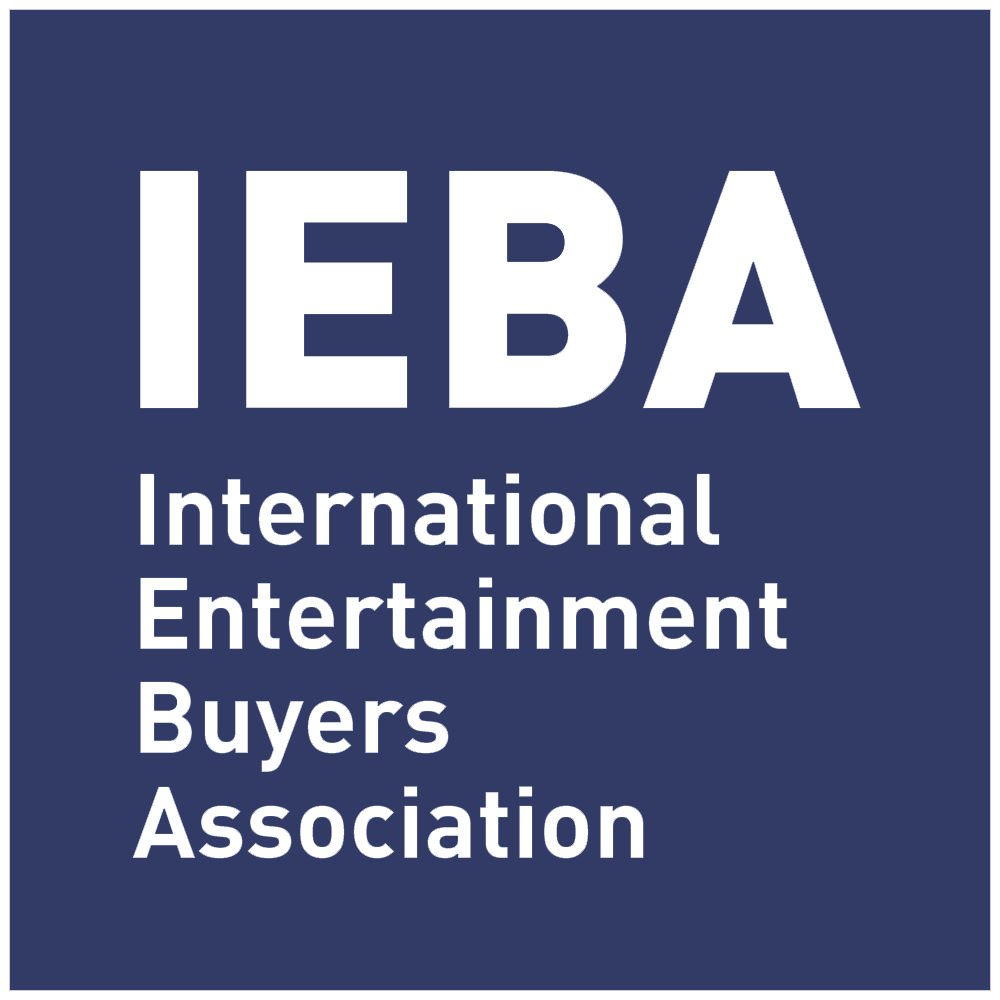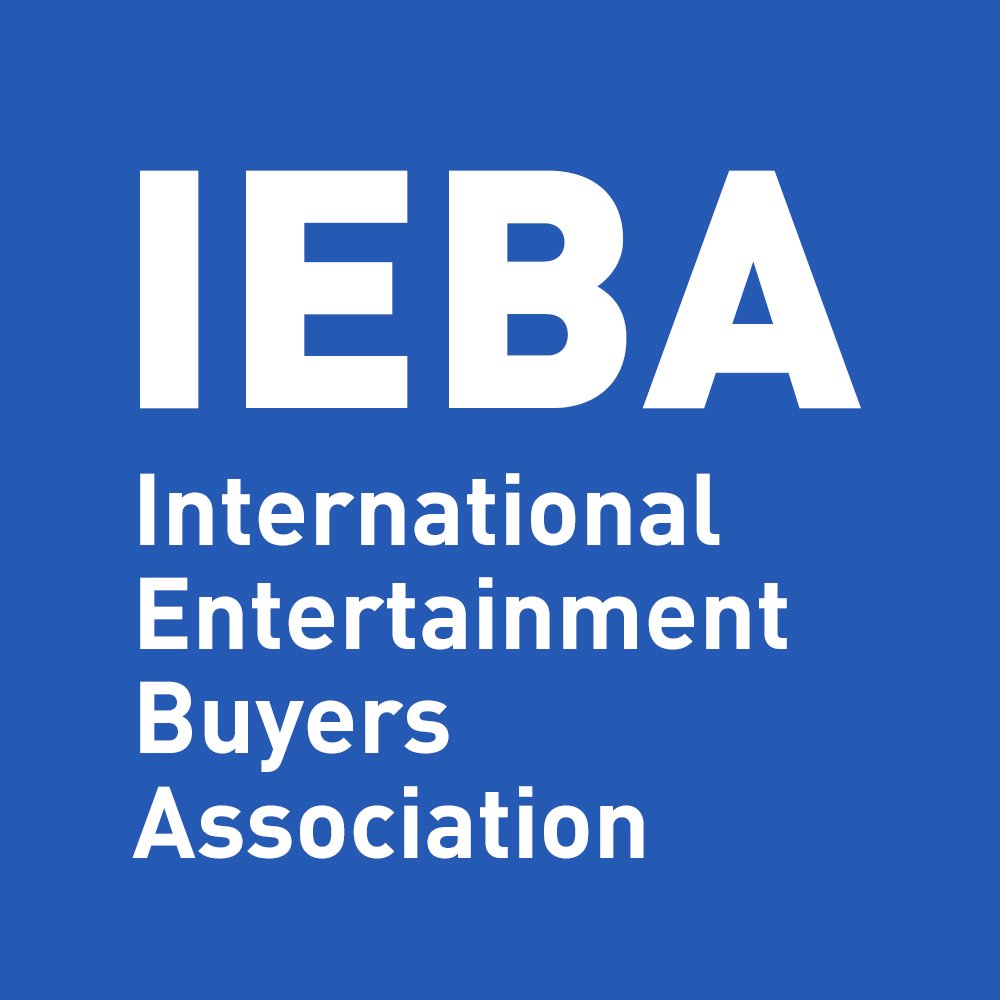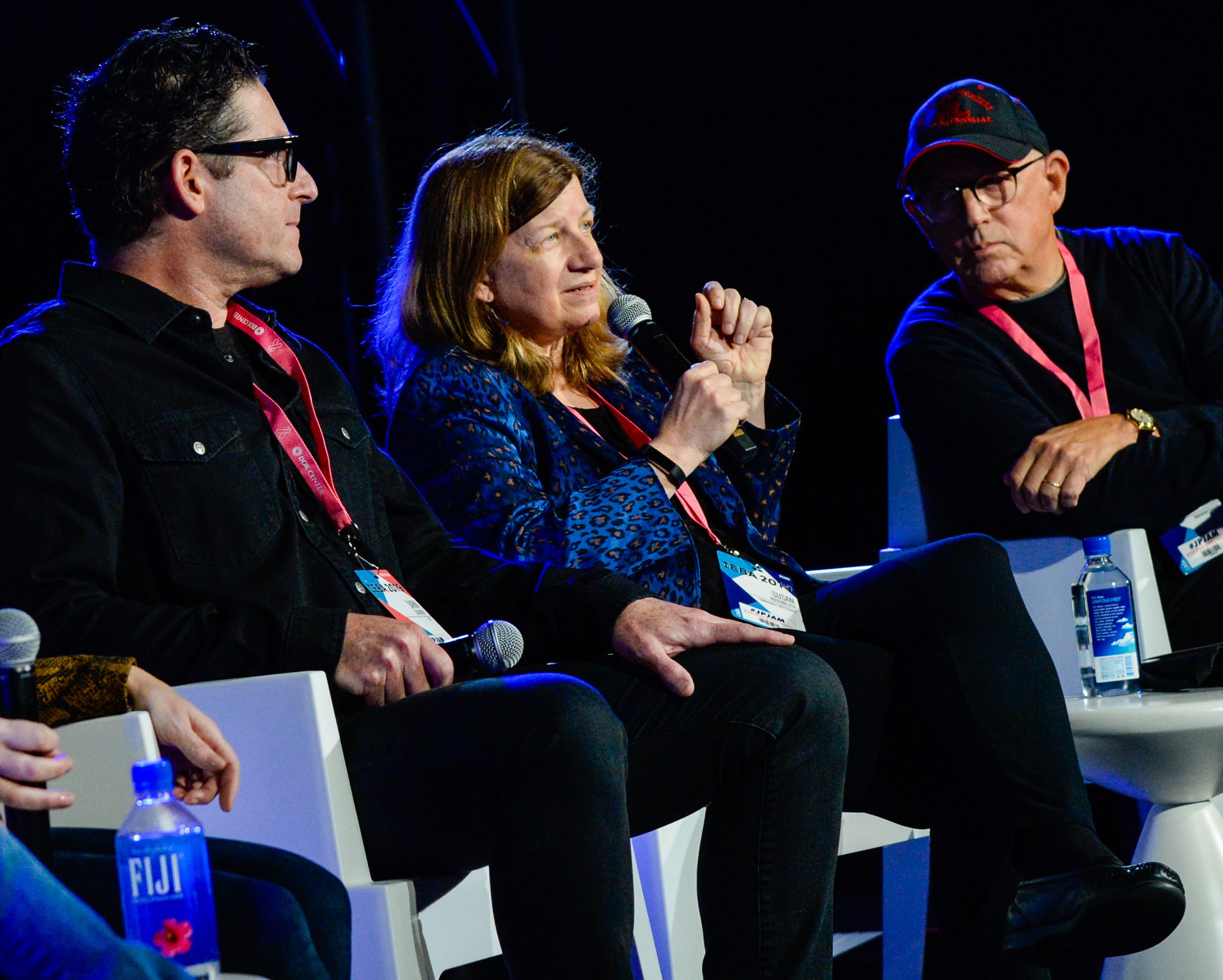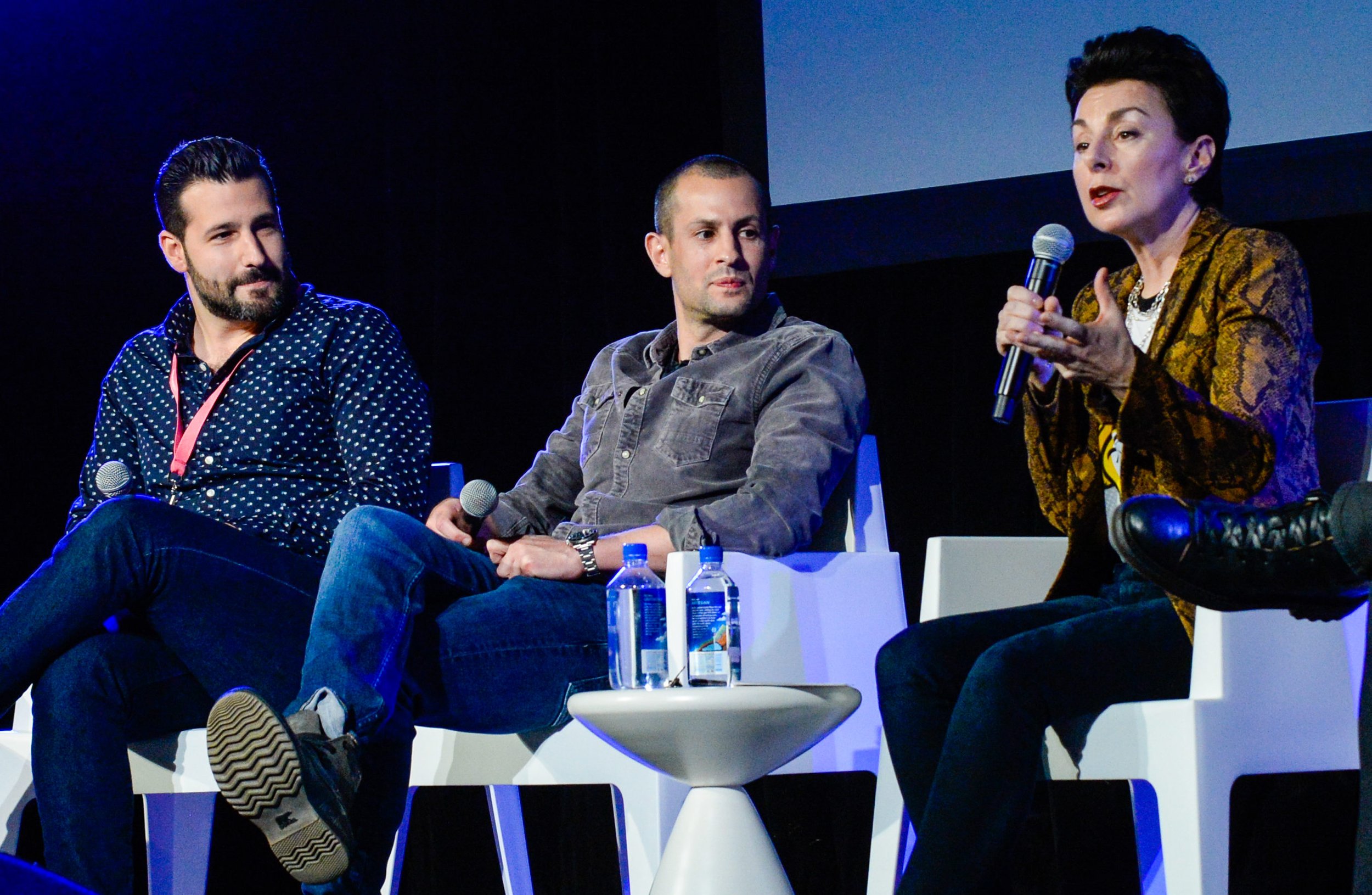Tell It Like It Is – 3 Agents in Conversation with 3 Buyers
Panelists:
Jeffrey Hasson, Paradigm Talent Agency
Gayle Holcomb, WME
Aaron Tannenbaum, CAA
Alex Hodges, Nederlander Concerts
Darin Lashinsky, NS2
Susan Rosenbluth, Goldenvoice / AEG Presents
Moderated by:
Pam Matthews, IEBA
Ours is a risky business.
Alex Hodges kicked off on this session, addressing the subject of risk. “The market today is really for the artist,” he said. “Their guarantee is set by the largest promoter, a publicly-owned company. I’ve never seen the business more challenging and more risky.”
Susan Rosenbluth added, “What’s important is taking reasonable risk, and the best way to take reasonable risk is to look at ticket prices first, with the agency and artist management, and back your way into the rest of the equation, especially the artist guarantee.”
Jeffrey Hasson agreed, “We all work together so we all have to calculate risk together, and it does start with ticket prices and what your act is worth. If you’re doing the right thing, there’s really not a risk.” He believes that deals that don’t make sense can risk an agent’s relationship with their artist. Another risk agents face relates to time – taking on too many acts and not focusing.
“Our jobs as agents is to represent our artists but it is also to be in partnership with our buyers and promoters,” said Gayle Holcomb. “If we don’t have promoters, our artists don’t have jobs. That partnership is very important. For longevity, if nothing else.”
For Aaron Tannenbaum, risk is “an endlessly complicated subject” but as it relates to promoter, agent, artist, and manager, the agent’s job is controlling variables. “You’re placing bets every time you do a show,” he said. “Is this the right ticket price, the right market, the right time, the right promoter? Are we giving the artist the best chance for success?”
Trust and Time Management
Matthews posed this question to the agents: “Tour offers have become the new normal for artists at all levels. It seems agents want to work with fewer & fewer buyers. Is this statement accurate?”
Holcomb wholeheartedly disagrees: “Everybody has a chance.” She collects offers from all promoters, all fair & rodeo buyers, and from PACs, casinos, and clubs to find the best opportunities for her clients. She’s quick to note that not all artists field national tour offers and that there are venues for every act.
“Artists aren’t the same so no single plan can work for every artist,” said Hasson. “Tour deals don’t make sense for some artists. I have promoters I love working with because they’ve proved to me that they care about what that play sets us up to do. It’s not putting a show on sale for the sake of putting a show on sale. Especially early on, more strategy is involved.”
Tannenbaum added, “We’d all be lying to ourselves if we didn’t admit that, just like any business, there are preferred promoters. That comes from working with a bunch and enjoying the style that certain promoters have. As an agent, you are vouching for a promoter you bring to a manager. Back to risk, it’s not worth the risk of having a manager and artist coming back to me if something goes horribly wrong. We work with the people we like. You have to prove yourself a reliable steward. No one is shutting the door on new promoters; I would love to work with as many as possible. It just comes down to risk versus reward.”
The buyers agreed that business is built on relationships and trust. For them, it’s also about time management. Darin Lashinsky put it like this: “If I’m working 9-10 hours a day, I’m handpicking who I’m working with, especially the agents. We’ve built relationships. We’ve built trust. That starts somewhere, maybe we begin with a baby act to learn each other’s style and develop a relationship.”
On the subject of time management, Rosenbluth said, “There’s so much touring. There are twice as many agents than when I started in this business. If there were 300 then, there are 600 – 700 now. I’m not going to buy from every agent.”
Hodges said, “I’m encouraged to hear agents on this panel welcome independent promoters, to fill dates or find a niche. At Nederlander, each team member has different relationships with agents and managers and venues. The right promoter and the right venue is key.”
“As promoters consolidate and come under one umbrella, as agents, we know this is the right company but sometimes we have to say ‘This person understands how to reach this fan better.’ It really is what’s right for the artist,” said Hasson.
Patience + Creativity = Longevity
Rosenbluth shared a strategy: “I figured out, pretty early in my career, that everyone is chasing the ‘Billie Ellish.’ I’m not going to chase that. I’m going to go find things that add additional programming to the venues I work with [over the years, these included The Greek, Arrowhead Pond, Bakersfield Arena]. I decided I was going to do Latin shows at The Greek, with my two years of high school Spanish and three years of Latin, in 1986.” Rosenbluth follows the Royal Albert Hall newsletter and noticed they were hosting orchestras performing music from Final Fantasy and Tim Burton movies. She saw that no one else was promoting these events so, when agents began approaching her, she booked these into Microsoft Theater. “You have to cherry-pick, like any other genre of music, but they’re a lot of fun and tremendously satisfying,” she said. Rosenbluth is an 11-year trailblazer in promoting K-pop. It began when she was approached by a Korean-American marketer who wanted to promote SMTown, a mega lineup of K-Pop favorites, at Staples Center. “I said okay, and I don’t know what made me say that,” she recounted. “Certainly, I had to get my village, my team on board with me. It sold out and we did it another time. Then I got really interested in following the genre and understanding it. I’ve been to Korea a few times. I just happened into that one but I also knew to follow the lead. It’s so much fun and it’s so different from anything else. Again, it was just playing attention to something other people weren’t paying attention to.”
Lashinsky and his team have lots of conversations about artist development and focus on long term relationships with artists. “We tend to say ‘ten-year career’ and these tend to be with managers and agents we have relationships with. So approaching this artist is not coming out of left field.” FPC/NS2 own & operate multiple venues in Madison, WI. “We have opportunities from 300 capacity up to 2,500. Somewhere in the booking process, we’re having conversations about more dates, maybe a tour deal.” He added, “Cool isn’t a factor. We’re buying & promoting shows we think fans want to see. That’s it.” For Lashinsky, these include kids shows, family shows, and dance tours. He’s particularly fond of underplays and multi-night runs. His comedy talent buyer Lisa Roberts is creating “something from nothing,” working with artists who have 1M followers on a daily post but little experience in live.
Hodges also knows the importance of “open ears, open mind.” He and Hasson both stressed the need to change up the experience for the artist and the fan. “An artist on the rise is different than an artist who has been in the game for twenty years,” said Hasson. “We must reinvigorate the fan base” citing Ben Folds paper airplane tour as an example. All of Holcomb’s clients have been with her for at least 15 years, including 20 years with Josh Grobin. She enlists WME’s film, television, literary, and speakers departments to help her clients try something new. “Take risks, bring opportunities, and believe in your clients,” she said.
Regarding longevity, Tannenbaum said, “Everything is meaningless if the music isn’t there.” To illustrate the art of patience and creativity, Tannenbaum used client Luke Combs who followed his Red Rocks play in May of this year with an August appearance at Jazz Aspen. “We sold out Red Rocks immediately, he did something really interesting and cool in the Colorado community, and then we wait two years. On the next album cycle, I’m confident we can come back and play Mile High Stadium. You are building a story. You are building excitement. You are building a career.” Tannenbaum continued, quoting his first boss James Yelich, “‘If chase the money, the career will suffer. If you chase the career, the money will come.’ I’ve found that to be 100% true, and I’ll keep doing that until it doesn’t work.”
Crystal Ball Predictions for 2020
When asked about artists and acts they’re excited about, the panelists responded:
Holcomb: Morgan Wallen, Lizzo, Riley Green, Ashley McBryde, Lauren Daigle, and non-traditional touring especially Baby Shark.
Hasson: Surfaces, whom he signed in May.
Lashinsky: Marcus King Band, Tyler Childers, and non-traditional touring especially podcasts and celebrity speaking engagements
Rosenbluth: Ed Maverick and cumbia artist Raymix.
Tannenbaum chose to spotlight an issue to watch for: dynamic ticketing.







